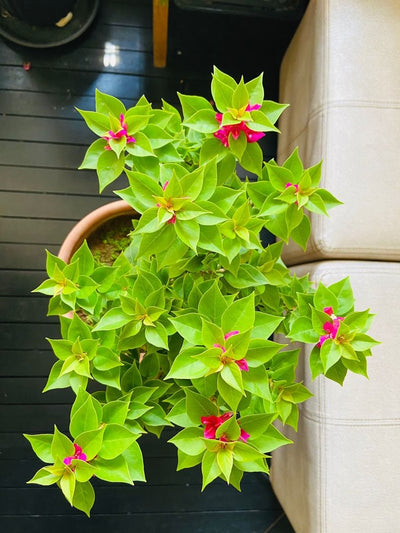Philodendron red emreld
Philodendron erubescens is a red emerald climbing house plant noted for its rich red wine colored stems, an easy-care indoor plant that will make a stunning addition to your indoor garden collection.
What makes it special in the Philodendron red emerald?
- Filter indoor air by absorbing toxins and removing harmful chemicals.
- Indoor gardening relieves stress and fatigue from enjoying and caring for your plants.
- Having plants in your home or office can be a source of joy.
- With their attractive-looking leaves, Philodendron plants will bring a tropical feel to virtually any well-lit area.
- Hand picked and shipped direct from our nursery.
Soil: Provide a loose, well-draining soil mix, not too sandy. Since they prefer organic material in the soil such as peat, coconut peat,
Light: These plants need bright indirect light so keep it near a window that doesn't get direct sunlight. Do not let direct sunlight fall on the foliage, the leaves may get scorched or many leaves will turn yellow.
Water: Red Emerald Philodendron loves well-drained, moist soil. As rainforest dwellers, philodendrons prefer water, which goes against common misconceptions that this plant needs little water. Since they belong to the tropics, they prefer moist soil (not wet).
Pruning: Pruning is not much required but if you want to keep the plant or if the plant is producing fruit, prune it. Pruning should be done in early spring (March–April) or autumn (September–October). Be sure to remove yellow leaves.
NOTE:
Images are for reference; the original product may differ in shape and size.






